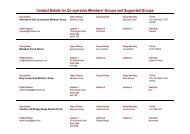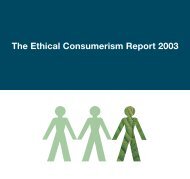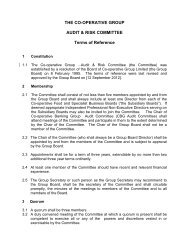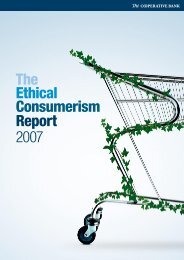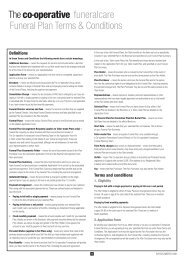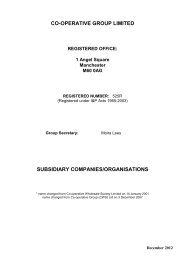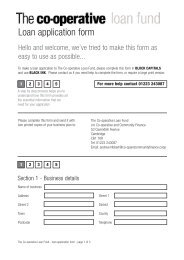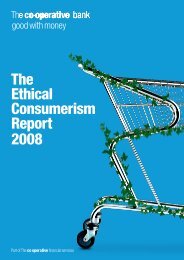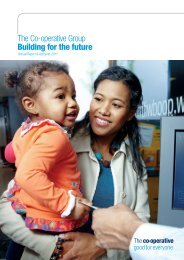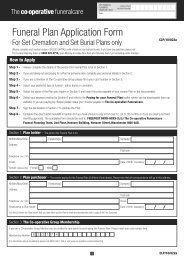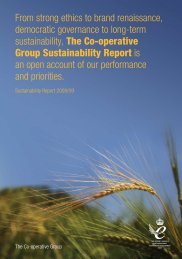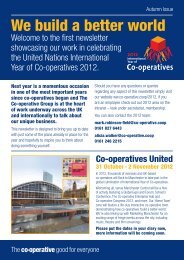Chocolate Report PDF - Fair Trade Barrie
Chocolate Report PDF - Fair Trade Barrie
Chocolate Report PDF - Fair Trade Barrie
Create successful ePaper yourself
Turn your PDF publications into a flip-book with our unique Google optimized e-Paper software.
1<br />
Globalisation: a dirty word?<br />
PHOTOGRAPHY: Brian Moody<br />
Globalisation: the exploitation by the<br />
affluent West of the Third World poor?<br />
The pillage by greedy multinationals<br />
of the labour and natural resources<br />
of people who have insufficient clout<br />
to negotiate a better deal? Or the<br />
only hope for a better life for millions<br />
in developing countries?<br />
Oxfam and many other development<br />
organisations believe trade can play a<br />
vital part in poverty reduction when<br />
the right conditions are met. <strong>Trade</strong> can<br />
equally be hugely damaging for poor<br />
people if it undermines their livelihoods<br />
by destroying their markets or ruining<br />
their environment.<br />
In the foreword to the Oxfam report<br />
on trade, globalisation and the fight<br />
against poverty,‘Rigged Rules and<br />
Double Standards’, Oxfam’s honorary<br />
president and Nobel Economics<br />
Laureate, Amartya Sen, writes:<br />
“Global interaction, rather than<br />
insulated isolation, has been the basis<br />
of economic progress in the world.<br />
<strong>Trade</strong>...has helped to break the<br />
dominance of rampant poverty and the<br />
pervasiveness of ‘nasty, brutish and short’<br />
lives that characterised the world.”<br />
But the report identifies a crucial paradox<br />
of global trading - that at the same time<br />
as being a source of unprecedented<br />
wealth, millions of the world’s poorest<br />
people are being left behind.<br />
“World trade has the potential to act<br />
as a powerful motor for the reduction<br />
of poverty, as well as for economic<br />
growth, but that potential is being lost.<br />
The problem is not that international<br />
trade is inherently opposed to the<br />
needs and interests of the poor, but<br />
that the rules that govern it are rigged<br />
in favour of the rich.”<br />
The report analyses the rules governing<br />
world trade and puts forward Oxfam’s<br />
policy goals for correcting the balance<br />
between the extremes of western<br />
prosperity and of third world poverty, in<br />
launching its ‘Make <strong>Trade</strong> <strong>Fair</strong>’ campaign.<br />
The Co-op fully supports Oxfam’s<br />
position that the right path is not one<br />
of ‘no trade’, but of ‘fair trade’.<br />
Although long committed to a<br />
responsible retailing policy in our<br />
relationships with customers and<br />
suppliers, the Co-op does not believe<br />
in product boycotts.<br />
Supermarket brands are particularly<br />
anonymous and are often supplied<br />
by major companies. The Co-op is<br />
determined to make this relationship<br />
more transparent. The choice of<br />
supplier is crucial, if retailer and customer<br />
want to make a real difference to the<br />
livelihood of that supplier.<br />
Products like bananas and mangoes,<br />
fruit juices, tea, coffee, cocoa and<br />
many more are sourced entirely or in<br />
part from growers in the Third World.<br />
4



